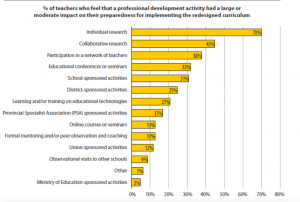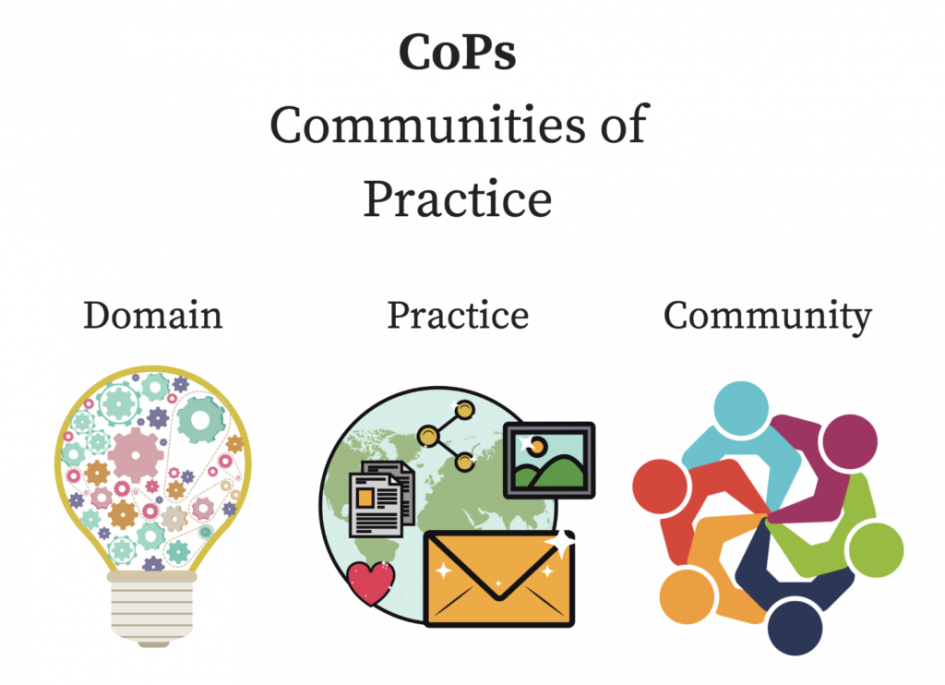There is much debate over whether the onus is on teachers to educate themselves or if the District and Ministry need to play a more integral role in the process. From the 2017 BCTF self-assessment survey mentioned in my other blog post, self-assessment showed that teachers felt most prepared to implement curriculum changes after conducting individual research, collaborative research, participation with a network of teachers or attended educational conferences and seminars. Sadly, ranked absolutely last was Ministry of Education sponsored activities.

Correlating this data, it seems that the Ministry needs to re-evaluate their materials and provide much more useful resources. Despite this assessment, it seems that teachers are still finding ways to become competent without the direction of the government systems in place.
If I were making decisions at the Ministry level, it would be to invest resources and Pro-D day time specifically towards allowing teachers the opportunity to network and share resources and knowledge.
In my research, I came across a term called Communities of Practice (CoP). Which in essence, are groups of people who share a common passion for something they collectively do and meet up regularly to learn how to improve from one another. A CoP is usually formed between colleagues to collaborate and share different perspectives through dialogue. Often this takes the form of conversations but quickly can lead to action planning and real changes. What makes a CoP effective is the mutual respect between colleagues, a growth mindset and shared purpose.
I believe that this type of approach could be very useful as a resource sharing platform but also an opportunity for staff members to connect in a meaningful, professional environment. This model agrees with the self-assessment survey conducted by the BCTF in 2017 which showed that teachers felt independent research and collaboration with colleagues was the most effective way to form self-efficacy.
In saying this, I still believe that the Ministry of Education needs to vamp up their current resources and do a better job supporting educators. Some of the biggest critiques from teachers was the lack of responsiveness on behalf of the Ministry once feedback was provided. Many educators are feeling hopeless and discouraged to continue to be a part of the change process because they aren’t receiving enough acknowledgement for their suggestions. If the Government believes that the new curriculum changes are important, then more resources need to be invested into training educators to be competent.
I haven’t concluded how this would actually work but potentially a week-long paid Ministry workshop that shows teachers how to use the new curriculum and immerses the teachers in this pedagogy would be my simplest recommendation.
For those of you unfamiliar with of the new curricular changes, I have embedded a video directly from the Ministry of Education that gives an overview of their recommended model below.
Author: Aaron Larnder
References:
Martha McAlister, B. S. W. The Creative Nature of Communities of Practice. https://www.kpu.ca/sites/default/files/Transformative%20Dialogues/TD.9.2.9_McAlister_Creative_Nature_of_CoPs.pdf
Photo taken from: https://catlintucker.com/2018/10/communities-of-practice/
Video from: https://www.youtube.com/watch?v=RTx_3zjjtvA&feature=emb_title

Leave a Reply